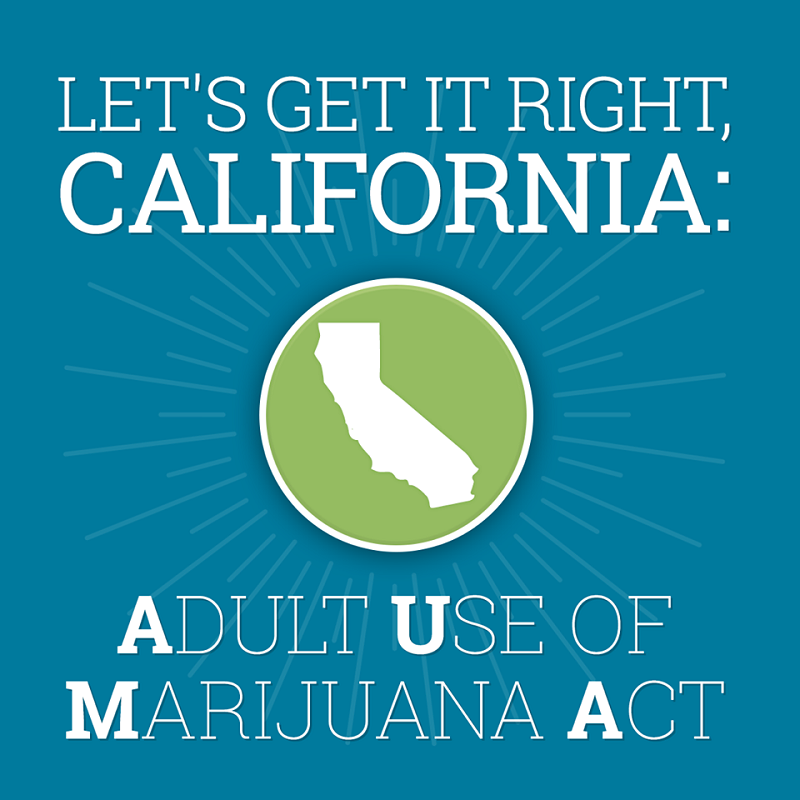Editor’s note: Our 6th Annual Vator Splash LA conference is coming up on October 13 at the Loews Hotel in Santa Monica. Speakers include Mark Cuban (one of the hosts of Shark Tank and owner of the Dallas Mavericks); Brian Lee (Founder & CEO, Honest Company); Leura Fine (Founder & CEO, Laurel & Wolf ); Nick Green (Co-Founder and Co-CEO, Thrive Market); Tri Tran (CEO & Co-founder, Munchery); Adam Goldenberg (Founder & CEO, JustFab); Andre Haddad (CEO, Turo); Mike Jones (Founder, Science) and many more. Join us! REGISTER HERE.
Once again, voters in California have a chance to make cannabis as legal as a glass of wine.
While California made history in 1996 when it became the first state to legalize cannabis for medical use, voters in 2010 declined the opportunity to also become the first state to legalize cannabis for recreational use. But the initiative has been rekindled.
On November 8, California residents will vote on Propositon 64 (known as the “Adult Use of Marijuana Act”), which, if passed, would legalize the possession, cultivation, and sale of recreational cannabis to adults aged 21 and older. (And, in case you’re curious about that glass of wine, the state of California ratified the 21st Amendement to repeal Prohibition in 1933—83 years ago!)
The initiative would also designate state agencies to license and regulate the cannabis industry as well as impose taxes, including a 15 percent excise tax on retail sales and cultivation taxes ($9.25 per ounce of flowers and $2.75 per ounce of leaves). Medical cannabis would be exempted from some taxation.
Two polls by Probolsky Research, one from February and one from August, predict that Prop 64 (which only requires a simple majority) will pass with about 60.9 percent of residents voting “Yes.” If it passes, it would make California the fifth state in the country to legalize cannabis for recreational use, after Colorado, Washington, Oregon, and Alaska.
 Supporters of the initiative include the California Democratic Party, former Democratic presidential candidate Bernie Sanders, and California Lieutenant Governor Gavin Newsom. Additionally, Prop 64 has support from the tech sphere. Sean Parker, famous for co-founding Napster and serving as Facebook’s first president has donated $2.3 million of his own money to support the initiative. Nicholas Pritzker, founder of Tao Capital Partners (which has invested in Tesla, SpaceX, Uber, Turo, and SolarCity), has also contributed $250,000.
Supporters of the initiative include the California Democratic Party, former Democratic presidential candidate Bernie Sanders, and California Lieutenant Governor Gavin Newsom. Additionally, Prop 64 has support from the tech sphere. Sean Parker, famous for co-founding Napster and serving as Facebook’s first president has donated $2.3 million of his own money to support the initiative. Nicholas Pritzker, founder of Tao Capital Partners (which has invested in Tesla, SpaceX, Uber, Turo, and SolarCity), has also contributed $250,000.
Among the opposition is Jim Cooper, a Democratic member of the California State Assembly, and Cathleen Galgiani, a Democratic member of the California State Senate.
Though cannabis for recreational use is today illegal in California, the state successfully passed SB 1449 in 2010, reducing possession of less than an ounce of marijuana to an infraction, punishable by a $100 fine and no arrest. So the state at least appears to be warming up to the idea that maybe cannabis shouldn’t be as illegal as cocaine.
In California, data from 2012 to 2014 estimated that approximately 9.2 percent of the population (approximately 3.5 million people) had used cannabis in the past month. For comparison, here were the figures for the states where recreational use has already been legalized:
- Alaska: 12.6 percent
- Colorado: 14.0 percent
- Oregon: 12.2 percent
- Washington: 12.7 percent
It might seem strange, but all that data includes anyone aged 12 or older. That’s because it’s from the Substance Abuse and Mental Health Services Administration (SAMHSA), a federal U.S. agency tasked with providing prevention, treatment, and rehabilitative services for people struggling with substance abuse or mental illness. So it’s important for the group to know about cannabis use by minors.
But, to be clear, the AUMA would only legalize recreational use of cannabis for adults aged 21 and up—just like alcohol.
In any case, it’s obvious there’s a huge potential for business growth in California if Prop 64 passes. Dixie Elixir’s CEO Tripp Keber told me his company’s consumer base tripled overnight when Colorado legalized cannabis for recreational use in 2012.
“We were making more money in an eight-hour period than we were in previous months,” he said.
If passed, the new law would take effect immediately. However, as seen in states like Colorado and Alaska, government regulatory bodies would have to put the processes in place to accept applications for business licenses. So it would be awhile before the first dispensary for recreational cannabis opened up shop.
If the proposition doesn’t pass, things would remain as they are, with cannabis only legal for medical use. That is, until someone gathers enough signatures and funding to put the question back on the ballot.
Ed. note: Our 6th Annual Vator Splash LA conference is coming up on October 13 at the Loews Hotel in Santa Monica. Speakers include Mark Cuban (one of the hosts of Shark Tank and owner of the Dallas Mavericks); Brian Lee (Founder & CEO, Honest Company); Leura Fine (Founder & CEO, Laurel & Wolf ); Nick Green (Co-Founder and Co-CEO, Thrive Market); Tri Tran (CEO & Co-founder, Munchery); Adam Goldenberg (Founder & CEO, JustFab); Andre Haddad (CEO, Turo); Mike Jones (Founder, Science) and many more. Join us! REGISTER HERE.


















